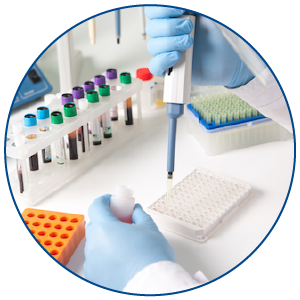
How is NGU passed on
It can be transmitted through sexual contact. Unprotected sex including oral sex, vaginal sex, anal sex, and the sharing of improperly processed sex toys (e.g. using a new condom or clean thoroughly) can cause the infection.

It can be transmitted through sexual contact. Unprotected sex including oral sex, vaginal sex, anal sex, and the sharing of improperly processed sex toys (e.g. using a new condom or clean thoroughly) can cause the infection.

Non-gonococcal urethritis (NGU) is an inflammation of the urethra caused by some pathogens including Chlamydia, Mycoplasma Genitalium, and Ureaplasma Urealyticum except Gonorrhoea through sexual contact. The symptoms of NGU include a slight burning and pain during urination.
Chlamydia
Chlamydia is the leading reason for infecting NGU (accounting for 50% of NGU cases). Chlamydia is bacteria that can be found in the semen and vaginal fluids, but it can also live in the cells of cervix, the urethra, the rectum and sometimes the throat and eyes. As it can be easily transmitted through sexual contact, any sexually active people, even without multiple sexual partners, can be easily infected and spread the bacteria by the secretion of human fluid.
Mycoplasma Genitalium and Ureaplasma Urealyticum
Mycoplasma Genitalium and Ureaplasma Urealyticum can live in the body without causing symptoms. However, when they multiply quickly, it leads to an inflammation of the urethra. Being ill or stressed could also cause the infection. Up to 10% of cases of NGU are caused by ureaplasma urealyticum, and up to 25% by mycoplasma genitalium. It is generally believed that these organisms may be transmitted sexually.

The incubation period for NGU is normally 7-21 days. The signs and symptoms are shown in various periods, subject to the cause of the infection. Usually, they appear within 2-4 weeks after infection, but sometimes it only takes a day or two. In mild cases, symptoms may not show up for several months.
Symptoms of Men:
Symptoms of Women:
Patients with NGU usually present symptoms and complications which are similar to but milder than that of gonorrhoea, such as inflammation of the vas deferens, vesiculitis, epididymo-orchitis, orchitis, and sterility in men; salpingitis, pelvic inflammatory disease, ectopic pregnancy, and sterility in women.
It is rare if the infection is in the rectum, but it may cause discomfort and discharge if the infection occurs. Infection in the eyes can cause pain, swelling, irritation, and discharge (conjunctivitis). Infection in the throat is uncommon and asymptomatic.

How soon after sex can I have a test?
It is important not to delay going for a check-up if you think you might have an infection. You can have a test for NGU even if there are no symptoms.
Do I need to have a test to check if Non-gonococcal urethritis (NGU) is gone?
You should receive a follow-up test two weeks after you are healed so as to:
If the signs exist, you may need a re-test and another course of antibiotics.
Reference
Hopkins MJ et al. Validation of a laboratory-developed real-time PCR protocol for detection of Chlamydia trachomatis and Neisseria gonorrhoeae in urine. Sex Transm Infect. 2010 Jun;86(3):207-11
Mahony JB et al. Detection of Chlamydia trachomatis, Neisseria gonorrhoeae, Ureaplasma urealyticum, and Mycoplasma genitalium in First-void Urine Specimens by Multiplex Polymerase Chain Reaction. Mol Diagn. 1997 Sep;2(3):161-168
Samra Z et al. Direct simultaneous detection of 6 sexually transmitted pathogens from clinical specimens by multiplex polymerase chain reaction and auto-capillary electrophoresis. Diagn Microbiol Infect Dis. 2011 May;70(1):17-21

The common treatment for NGU is a course of antibiotics.
What happens if NGU is not treated?
If NGU is treated early, it is unlikely to cause any complications. However, without proper treatment, the infection will lead to long-term health problems, including:
Pelvic inflammation and long-term pain can occur if NGU is caused by chlamydia. There is still not confirmed if NGU will lead to pelvic inflammation.
Reference
“Chlamydia” – The family planning association of UK
http://www.fpa.org.uk/helpandadvice/sexuallytransmittedinfectionsstis/chlamydia
“Non-specific urethritis” – The family planning association of UK
http://www.fpa.org.uk/helpandadvice/sexuallytransmittedinfectionsstis/non-specificurethritis